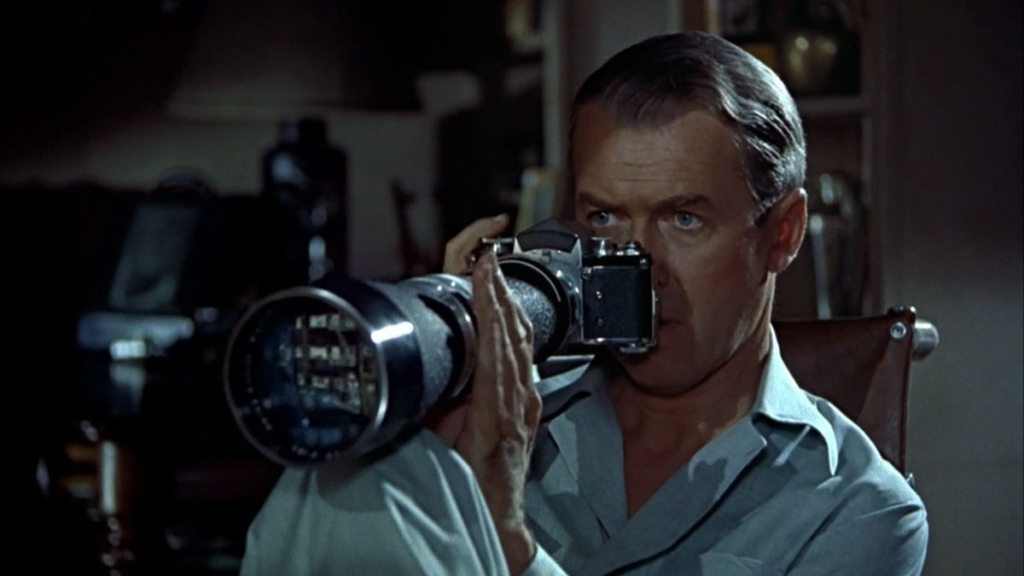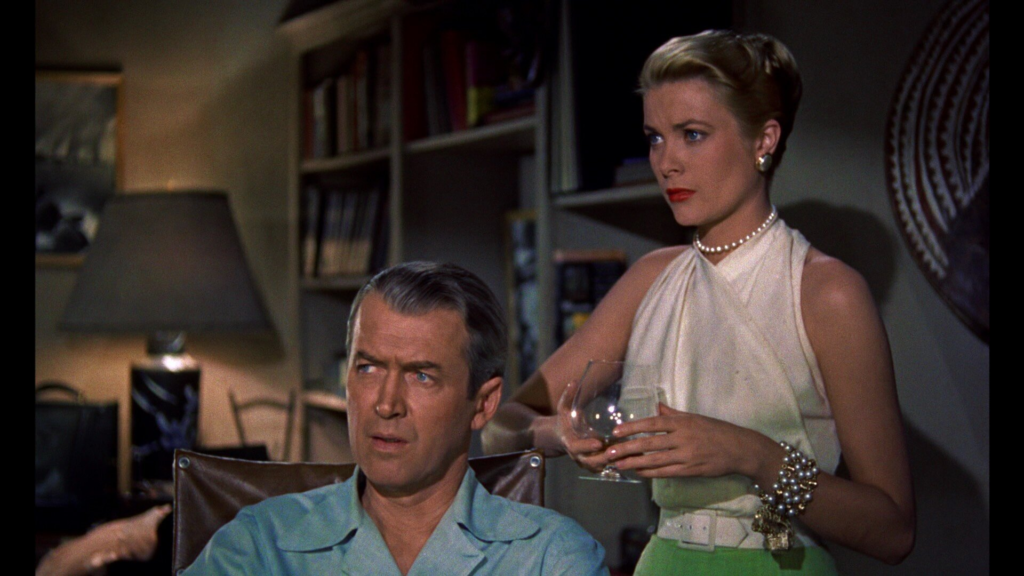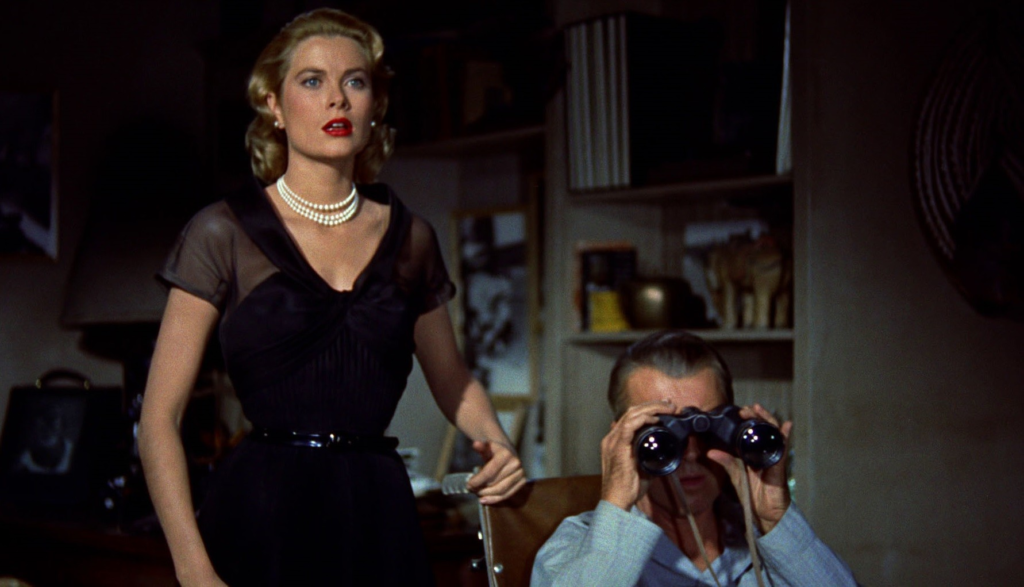Director: Alfred Hitchcock
Writer: John Michael Hayes
Stars: James Stewart, Grace Kelly, Thelma Ritter
Synopsis: A house and wheelchair-bound photographer, his fashion model girlfriend and his visiting Nurse spy on neighbors from his courtyard window. Despite skepticism by his PD Detective friend, they’re convinced one of his neighbors is a murderer.
Many sayings about neighbors basically tell us same thing: don’t be nosy. Those who live in cramped cities know how truly difficult that can be. You can hear your neighbor through the wall as if they were sitting next to you. The couple down the street fighting have an audience as big as an amateur boxing match. Any time anyone opens a window they invite the sounds, smells, and opinions of everyone around them. We all know the inkling to create a story based on observed behavior or an off hand comment. We all know what it’s like to suspect our neighbors of malfeasance on just a hunch. This is why Rear Window has endured for 70 years.

The greatness of John Michael Hayes’ adapted script is the depth of the detail of all of the people who are only known to L.B. “Jeff” Jeffries (James Stewart) by what he can see peeping into their windows from his lofty perch. There’s an entire ecosystem across the courtyard that never notices Jeff’s existence. The script not only balances the murder plot and Jeff’s woes about his love life, but entire stories on their own that play out in small vignettes. There is a beginning, middle, and end to the entire saga of Miss Lonelyhearts (Judith Evelyn). There are a half dozen additional stories going at any one time and they are all balanced and serve the main plot exquisitely.
The brilliance of Alfred Hitchcock’s direction and his long-time collaborator, cinematographer Robert Burks’ camera work is that most of their shots come from the angle of Jeff’s apartment. Even though the plot progresses outside of it, we’re contained in the apartment with Jeff. We see everything he can see as well as what’s inside his apartment. There’s a world of movement and life that is constantly happening even as we get shots of Jeff and his compatriots in Jeff’s apartment. There’s never more zoom than what Jeff can achieve with his binoculars or the long lens of his camera. The best shot they create is a static one of a completely dark apartment with all the action happening in the courtyard. Then out of the gloom, the red glow of a cigar as the potential murderer sits in contemplation. It gives you more chills than the screams that bring Jeff to the window in the first place.
The sound design of Rear Window is simply impeccable. Sound editor Howard Beals and sound recording mixer Loren L. Ryder, both uncredited on the film, build a constant soundscape that is both banal and dynamic. There are constant cars honking, children playing, and other daytime sounds as Jeff stares out his window or chats with Stella (Thelma Ritter), his insurance company nurse. It’s at night that sound becomes important and the discomfort we have when the silence of the night is broken by a slamming door, a discordant strike of the piano keys, or even a scream. It’s a phenomenally effective way to transition the story.

What’s also phenomenally effective is Grace Kelly’s performance as, reading from top to bottom, Lisa… Carol… Fremont. Hitchcock films are famous for his blondes. Like many of Hitchcock’s blondes, Lisa is woefully underwritten, but Grace Kelly manages to pull from the depths of Lisa, a tragic figure who, like Miss Lonelyhearts, just wants someone to notice her for her. Jeff is insulting to Lisa’s want of a committed relationship. He mansplains the world to her, but Lisa gives as good as she gets. She one-ups Jeff and his nonsense and even risks it all to try and impress upon him that she can and will be what he thinks he wants her to be. In the end, we think she has decided like so many others before her to tamp down her entire personality for her significant other in the wordless final scene. As Jeff naps in his wheelchair, Lisa lounges on the bed. Instead of a designer dress, Lisa has herself outfitted in sensible shoes, trousers, and a neat button up. With a wry smile at her sleeping lover she drops the rugged travelog for a fresh copy of Harper’s Bazaar. That is the true wonder in Kelly’s performance that she can make manifest what we have to often read into Lisa’s motives. She wants Jeff, for some reason, and she’ll make sacrifices to do it, but she’ll maintain her sense of self until she can gradually come into her own again.

Rear Window may be the best of Hitchcock’s films. It has so many devious moves and machinations, but doesn’t ever leave the single location it’s in. It’s like a locked room mystery except all the action is outside of the room and the detective is stuck inside piecing scant thoughts together. The depth of the world outside the window is unmatched and the world itself is so rich with excitement and banality in equal measure. It’s a film to watch over and over again because you’ll see something different every time you watch, a new detail, a new clue, and a new love for a truly great film.





